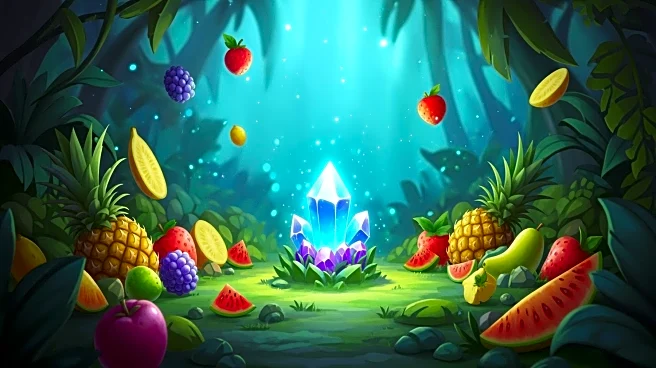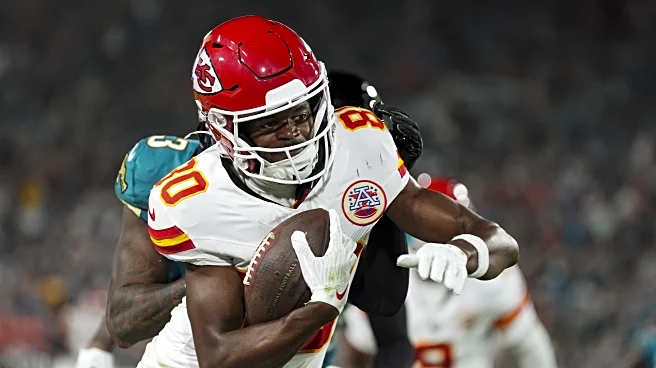What's Happening?
WildBrain Studios is reportedly developing an animated television series based on the popular video game character Crash Bandicoot, which may be released on Netflix. This development comes as the franchise
approaches its 30th anniversary. The original Crash Bandicoot game was created by Naughty Dog and released on PlayStation 1. Over the years, the rights to the franchise have changed hands, currently residing with Activision. The most recent game in the series, Crash Bandicoot 4: It's About Time, was published in 2020. WildBrain Studios, known for its work on Sonic Prime and Carmen Sandiego, is leading the project, although specific details about the creative team have not been disclosed.
Why It's Important?
The development of a Crash Bandicoot animated series signifies a major expansion of the franchise into television, potentially increasing its cultural footprint and reaching new audiences. Netflix's interest in video game adaptations is evident, with several game-related shows already available on the platform, such as Tomb Raider and Castlevania. This move could further solidify Netflix's position as a key player in the adaptation of video game properties. For Activision, the series could rejuvenate interest in the Crash Bandicoot franchise, potentially leading to increased sales of existing games and merchandise.
What's Next?
As the series is still in development, further announcements regarding the release date, cast, and specific storyline are anticipated. Netflix's strategy of adapting popular video game franchises into series may continue, with potential for more collaborations with game developers. The success of the Crash Bandicoot series could influence other studios to explore similar adaptations, potentially leading to a surge in video game-based content across streaming platforms.
Beyond the Headlines
The adaptation of Crash Bandicoot into an animated series highlights the growing trend of cross-media storytelling, where video game narratives are expanded into other entertainment forms. This trend raises questions about the creative challenges of maintaining the essence of the original game while appealing to a broader audience. Additionally, it underscores the importance of intellectual property management in the entertainment industry, as rights and ownership can significantly impact the development and distribution of new content.










